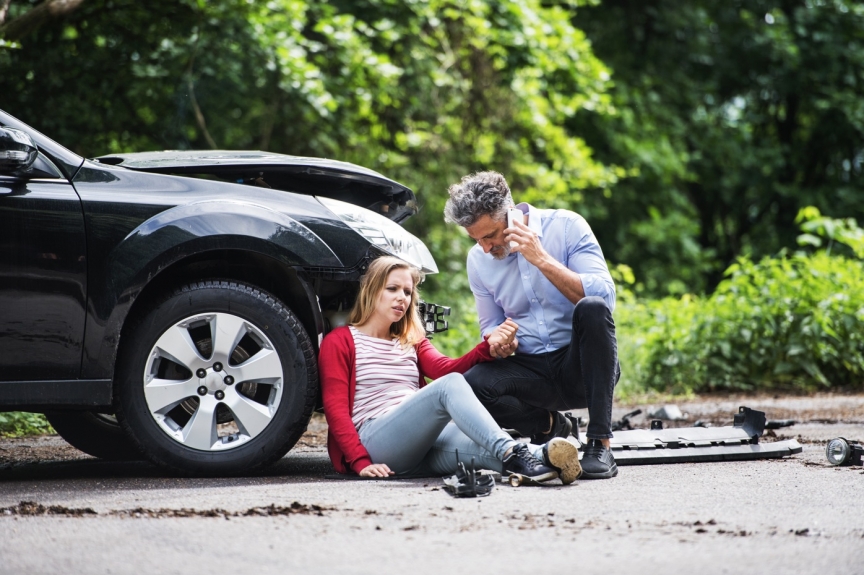Car accidents are distressing incidents that often end in severe injuries. If you get into one and leave unscathed, you still need to receive medical treatment. Some injuries aren't visible, and internal wounds often tend to be fatal when not addressed.
What injuries can you get in a car accident? This article will list the common internal ones, their symptoms, and treatment options.
Traumatic Brain Injury (TBI)
In a car accident, you could receive a sudden blow to the head that you won't register immediately due to adrenaline. It might not bother you initially, but you start to feel different as time passes. You need to visit a doctor as soon as possible because what you're feeling might be a traumatic brain injury.
There are two common types of TBI: mild and severe. Mild TBI may temporarily affect your brain cells. In contrast, severe TBI could bruise, tear, or leave physical damage to your brain. Symptoms include headaches, nausea, dizziness, and cognitive difficulties. Ignoring the pain or symptoms may lead to long-term complications and, sometimes, death.
That's why you must seek immediate medical treatment if you get into a car crash. Your doctor will recommend a CT scan after car accident symptoms don't improve or show clear signs of severity. The scan creates detailed images of your body using advanced imaging technology and computer processing. The pictures show if you have any internal head injuries or other issues that need prompt attention.
If you have a mild TBI, you may be prescribed rest and over-the-counter treatment along with consistent monitoring. Otherwise, you need emergency care for a severe TBI.
Internal Bleeding
A vehicle accident might also result in internal bleeding or a hemorrhage. This condition happens when your blood vessels break or burst, and the blood collects inside your body.
Internal bleeding has several causes. In this case, a sudden, heavy impact from a car crash could occur. The condition may be visible when it leaks, such as from the ears or nose. You may have a hemorrhage if you notice lightheadedness, shortness of breath, or increased heart rate. Doctors diagnose internal bleeding through lab tests and a physical exam.
Doctors diagnose internal bleeding through lab tests and a physical exam. Treatment depends on the severity and will be adjusted accordingly. You may undergo surgery and be administered vitamin K injections, IV fluids, or blood transfusions.
Blood loss is something you shouldn't ignore. Losing even 30% of your blood volume could result in complications like seizures and hypovolemic shock.
Organ Damage
Besides bleeding and a TBI, what injuries can you get in a car accident? Organ damage is one of them. The strong impact of a crash may cause liver damage, a ruptured spleen, or punctured lungs.
Internal organ damage could be fatal if not addressed immediately. So, seek medical care if you feel symptoms like difficulty breathing, severe pain, pale skin, or confusion.
An organ transplant may be the only solution in extreme cases. Sometimes, you'll also have internal bleeding alongside organ damage and need surgery for it. After prompt treatment, you'll likely recover unless there are complications like an infection or surrounding soft tissue injuries.
Getting emergency care late could lead to chronic organ failure. Healthcare providers define the progress of the failure in stages, the last being considered 'end-stages.' Your organs are damaged enough to lose their functionality. When this happens, aside from needing a transplant, you might also require artificial life support just to survive.
Spinal Cord Injuries
Among the common vehicle accident injuries you can get, spinal cord trauma can have the biggest impact. It could cause permanent changes in feeling, strength, and other body functions. That's because there's nerve damage.
A primary symptom is typically loss of feeling or control of movement, also known as paralysis. However, others may also experience exaggerated spasms or reflexes. Some might even have changes in sensation, such as in their ability to feel heat or cold.
Spinal cord injuries aren't always obvious, but when someone has head or neck injuries, they need immediate medical attention. Numbness or paralysis can also occur quickly or manifest gradually. Doctors will check the condition with tests like X-rays, CT scans, and MRIs. They'll also recommend neurological exams.
Bone Fractures
When you're asking, 'What injuries can you get in a car accident?', a typical answer is a bone fracture. Broken bones can be painful, especially if it breaks through the skin.
The usual signs of bone fractures include:
- Pain and swelling
- Difficulty standing or putting weight on the area
- Inability to move the area
Doctors will get an MRI scan of your body to determine the extent of the fracture. Treatments typically involve a cast to stabilize the area as it heals. Severe and compound fractures may require surgery.
What To Do After an Auto Accident

Call law enforcement and emergency services as soon as possible for medical attention. Immediate care can prevent car accident injuries from worsening.
Remember to consult a personal injury lawyer, especially if you have a delayed injury. Legal assistance will help you receive maximum compensation for mounting medical bills.
Consider seeking therapy, too. Vehicle accidents could leave you with post-traumatic stress disorder. A therapist will help you understand and manage your symptoms. Psychological help could be beneficial to your overall recovery.
Wrapping Up
So, what injuries can you get in a car accident? The five listed above are the most common ones. Visible physical injuries often take precedence over unseen ones. But it's usually the internal issues that turn fatal quickly.
If you seek immediate care for your internal injuries, you can reduce the chances of fatality. Prioritize your health over your car. You can replace your vehicle, but not your body.






